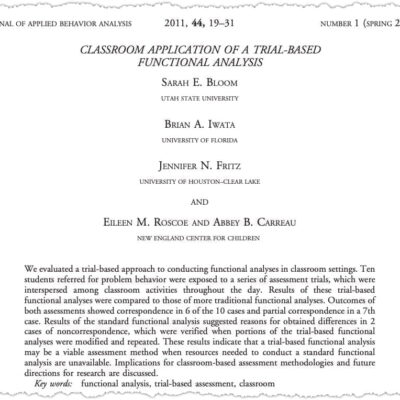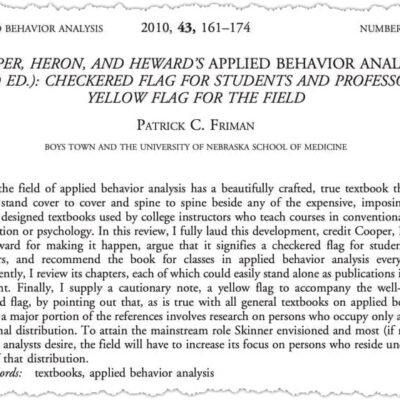Visual Support Strategies to Teach Recreation and Leisure Skills to Adults with Developmental Disabilities
Jeff Chan
Recreation and leisure skills are vital for daily life, impacting rest, relaxation, and overall well-being. Three studies presented at the 2017 Michigan Autism Conference demonstrate the effectiveness of visual support strategies in teaching such skills to adults with developmental disabilities, including activities like painting, listening to music, and playing games on digital devices like iPads. These findings suggest that visual methods are a practical and efficient approach for skill acquisition in this population.
This product has been discontinued.
You may also like…
-
Article Quiz

1 BCBA CEU
Classroom Application of a Trial-Based Functional Analysis
Sarah E. Bloom, Brian A. Iwata, Jennifer N. Fritz, Eileen M. Roscoe, & Abbey B. Carreau4.69 out of 5(29)$9.99 Add to Cart Quick View -
Interactive Video

0.5 BCBA CEU
When Science Meets Animal Training: An Interview with Bob Bailey
Bob Bailey4.00 out of 5(1)$4.99 Add to Cart Quick View -
BundleSale!

32 Total BCBA CEUs
4 Ethics CEUs3 Supervision CEUs25 General CEUsGalactic Bundle
5.00 out of 5(1)$319.87Original price was: $319.87.$216.98Current price is: $216.98. Add to Cart Quick View


